Q&A: Max Greyserman on PGA Tour Setup, Strategy, and More
Plus some thoughts on his wild final round with Matt Kuchar last year
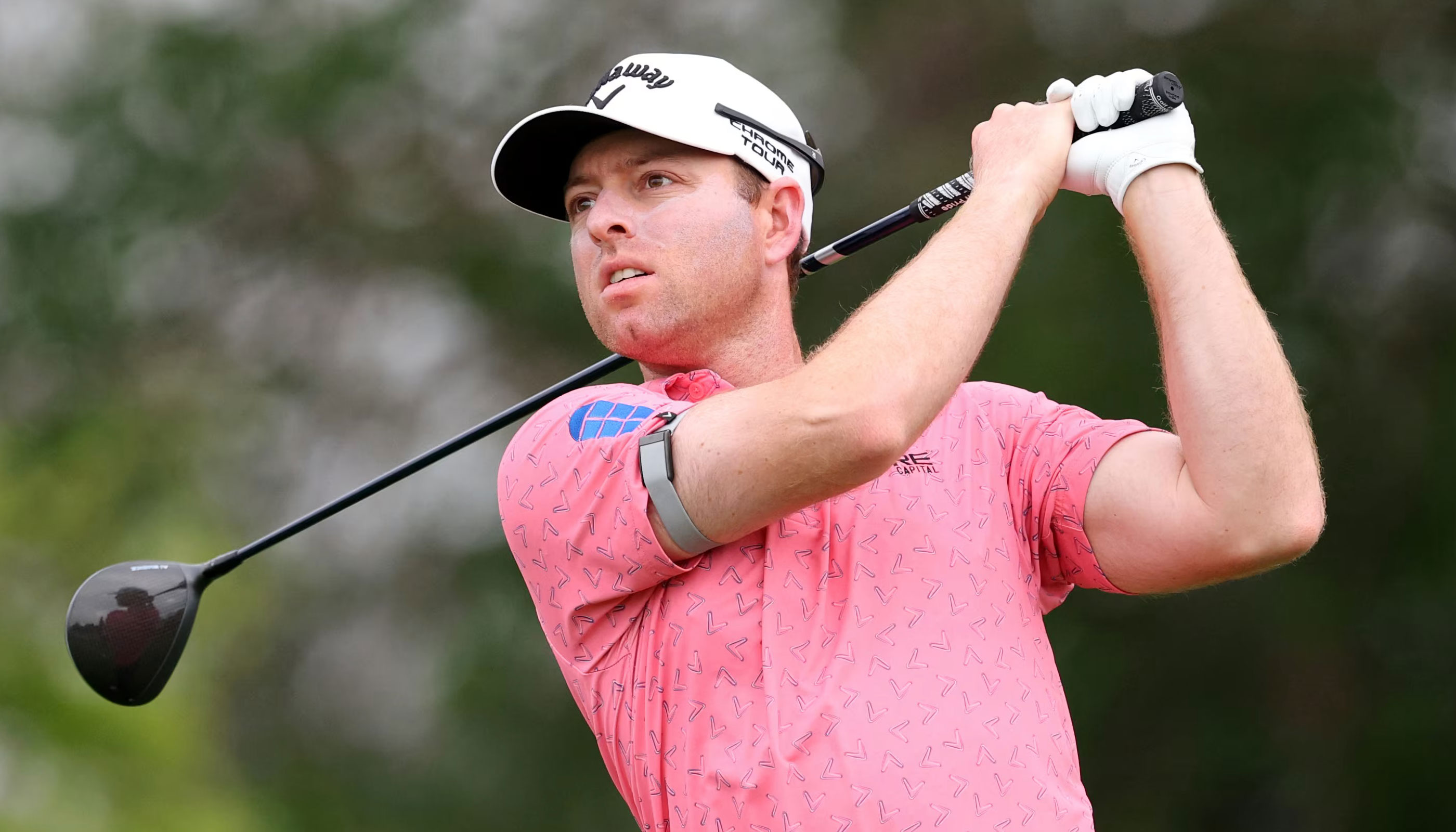

Max Greyserman is wrapping up his second full season on the PGA Tour. The Duke graduate represents a prime example of a player who has worked his way up through the ranks, steadily progressing from conditional Korn Ferry Tour status all the way to guaranteed spots in all of the Tour’s signature events this season and appearances at all four major championships.
In advance of this week’s Wyndham Championship, I caught up with Greyserman to discuss a wide set of topics ranging from golf course strategy to the top priorities of new PGA Tour CEO Brian Rolapp to the infamous Matt Kuchar scene on the 72nd hole at last year’s Wyndham.
Max, you have a unique backstory. Your parents emigrated to the United States from Kyiv. Russian is your first language. Was there any golf in your family? How did you end up with a golf club in your hands?
Max Greyserman: I don't think my parents even knew what golf was before they moved to America. I'm pretty sure they found out about golf in their 20s. My mom tells the story that they lived in New Jersey, just outside New York, and they would vacation in Florida, just like many people do from that region of the country.
They went to, I believe, PGA National. They saw a sign for free golf lessons from a well-known instructor named Mike Adams. They went and took some lessons. And that was their intro to golf. Then I'm sure my dad, being in the business world, would play golf with other people.
Back then, I would be with them on the range or on the course in a stroller. And once I started walking, I just grabbed a golf club and it kind of randomly happened that way. It's a strange story. Definitely unique.
You mentioned your dad's business background. He has had an extensive career in finance and also served as a professor at Columbia University for two decades. How has his analytical, finance background shaped how you view and evaluate your own career?
It's definitely huge. I grew up with a math background. He took me to compete in chess tournaments at a young age. Math and analytical thinking was instilled into me from a very young age.
Golf is a game of skill, but it's also a game of decision-making. It's a strategy game, not just entirely a game of skill. All sports are strategy-based, but I can't just run through the defense like LeBron James and go for a dunk and outskill someone. You have to think your way around the golf course a little bit more than you do in other sports.
At the beginning of college, Scott Fawcett did a seminar at Duke about the analytical, decision-making side of golf. When my dad saw what he was teaching and what I learned, it was like a light lit up in his head. I spent some time with Scott in Texas back at his home in 2015 or 2016. I actually caddied for him in a Texas Am qualifier.
So yes, I've been learning and studying the analytical side a little bit. But at the same time, you kind of have to let go of that stuff and play golf as if it’s a game too. You can't overanalyze. I kind of fight back and forth internally on that a little bit.
Safe to say you're not playing angles out on the PGA Tour?
No, if you want to shoot the lowest scores, you cannot play angles. I like Fried Egg Golf a lot and have been a follower basically since it started. So people like to ask me, “Oh, do you think this golf course is good?” And my answer is always that there are golf courses that are fun to play and there are golf courses that are tournament golf courses that identify the best player.
To me, those are two completely different objectives. On the PGA Tour, if you want to shoot the lowest scores, you cannot play angles. That's just not going to get you to the top of the leaderboard. Some players might say they are playing angles, but they probably are not.
But then if you go play a great golf course at home that's well-designed, then it's fun to sort of play angles and figure out the golf course in a different way. So I look at it through two different lenses. The answer is no, though, I'm not playing angles on the PGA Tour.
Which golf courses do the best job of creating complexity to where maybe you aren’t playing angles, but at least you have more options? Would you agree that Augusta National is more strategically complex than most golf courses you see?
Yes, when a course gets really firm and fast on the PGA Tour, that's when you can play angles a little bit. But it has to get firm and fast like it does at a U.S. Open. The problem is that we play in the middle of the summer. We can't play in the fall when courses tend to be firm and fast.
When courses get firm and fast, that's when you definitely have to think about angles a little bit. For example, let's say a green is guarded by bunkers on the front right and not on the left side. Maybe missing off the tee on the left side plays a little bit easier than if you were to miss right, which tends to happen on courses like Bay Hill or Muirfield Village when it gets very difficult and firm.
Then maybe instead of aiming down the middle of the fairway like I normally do, my stats guy might recommend I aim five to 10 yards left of the middle of the fairway. Not like way towards the side, but just a little bit. When courses get firm and fast, absolutely angles matter more. When a course is soft, it doesn't matter what golf course it is, angles aren't going to matter at all.
Augusta tends to be firmer and has slope. Angles start to become a little more important there. No. 14 at Augusta, that’s an interesting golf hole because it's a slight dogleg left but if you're down the left side, you're kind of blocked out by trees and the green is positioned where it's better to come in from the right.
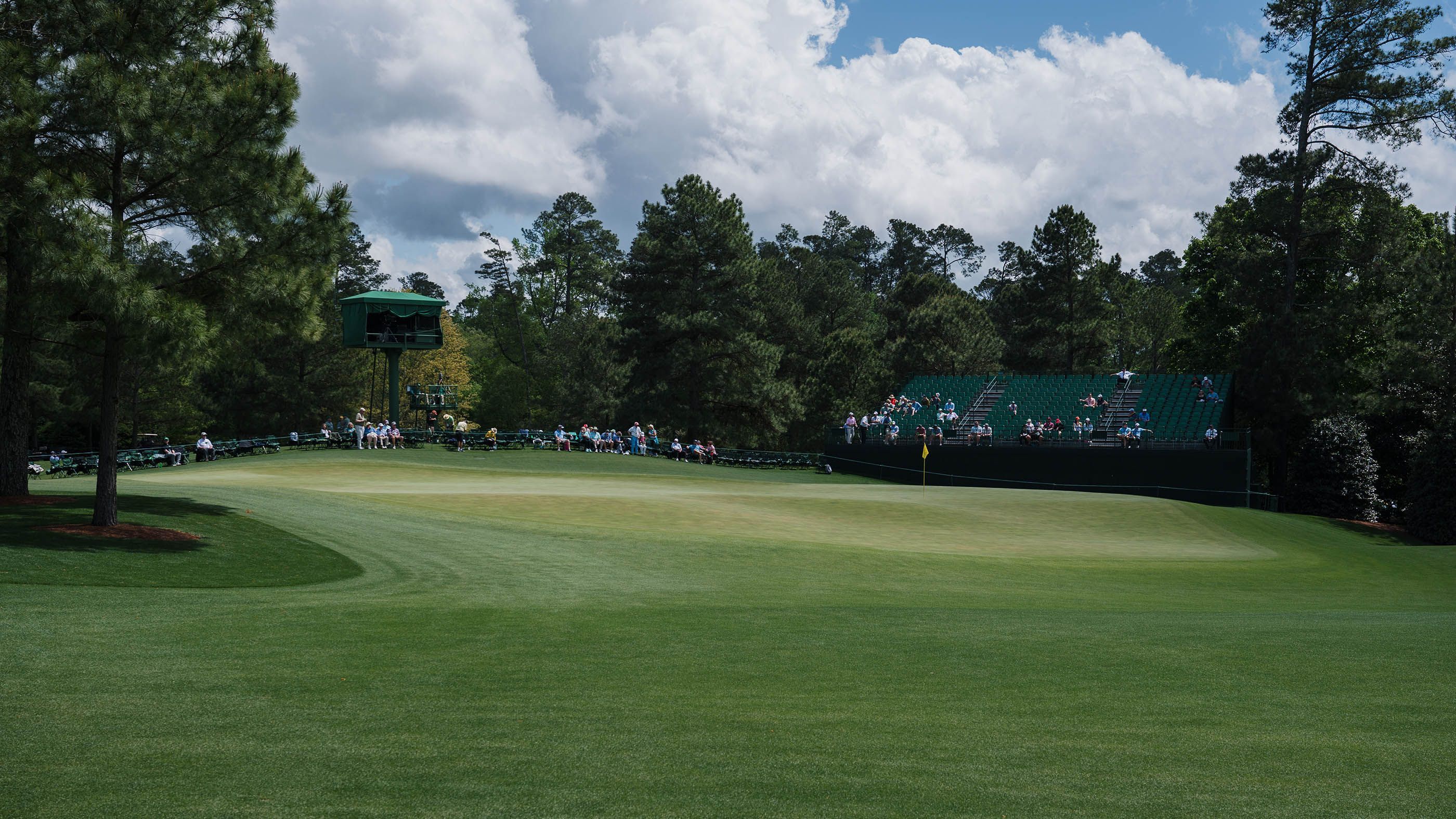
That would be an example where I would aim just a little more down the right to kind of get that angle because if you're on the left side of the fairway you might get blocked out by trees.
No. 13 when played as a layup hole is incredibly important on the angles based on the pin location. If I dump it short left of the green, I might be hitting more up the green versus if I dump it right, then I'm basically hitting across the green on a perpendicular angle to certain pins.
.jpg)
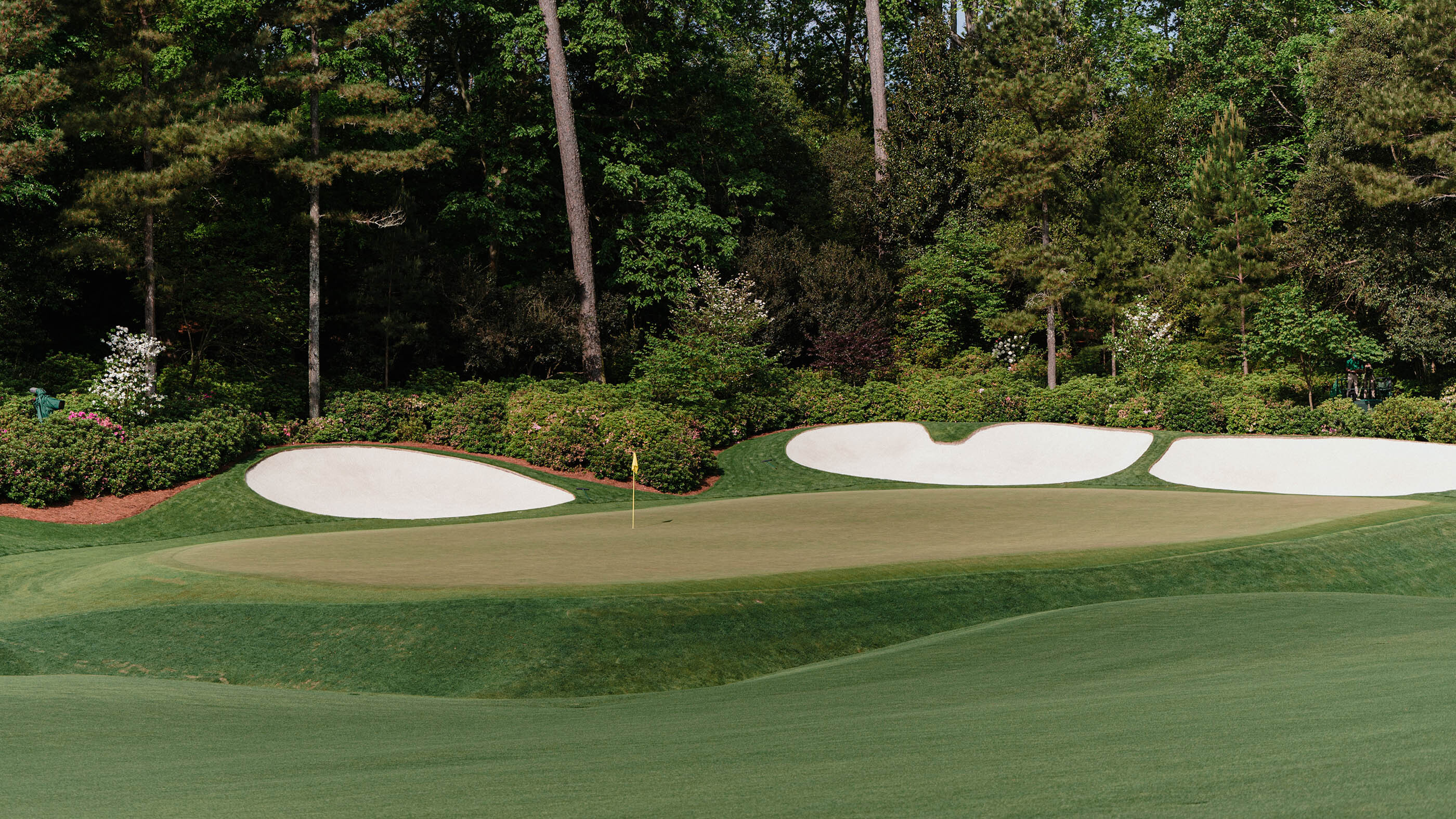
If the pin is back right, it’d be better to lay it up a little more left. If the pin is back left, it’s better to lay up a little more right.
Your two younger brothers both play college golf. What is your perspective on when aspiring professional golfers should turn pro? For example, if a player has the opportunity to turn pro before their senior year, should they return to college and spend that extra year developing, or should they turn professional and start cutting their teeth on tour?
It's so different now because of all the money that's pouring into college athletics through NIL. Then you have the PGA Tour U program that gets you onto the Tour. It's a very different landscape than when I was in college, right before this started.
It’s important to develop in college. But at the same time, you might be better off just getting dumped into the pro landscape and essentially making your learning curve faster. Going to class and doing your homework and all that stuff, you don't have as much time in college to work on your golf game and go to the gym and do all the things you need to do compared to when you’re a pro.
PGA Tour U is very important, though. If I was in the mix for PGA Tour U, I would probably stay in school and try to get some status because status is hard to come by now through Q-School since they're giving more slots to PGA Tour U kids. If you have NIL money as well, then you're better off staying in college. With the structure the way it is right now, I think you're better off staying in college. In the previous structure, you're probably better off turning pro.
You spent four full years on the Korn Ferry Tour, plus one that was interrupted by injury. What is your recollection of those years? Were you discouraged? Were you stressed all the time?
Looking back on it, there were crazy ups and downs. Glimpses of “I'm going to be on the PGA Tour at the end of this year” to “How am I ever going to get on the PGA Tour?” And injuries. Those were important years growing up and becoming a better professional golfer and learning what it takes to compete out here and stay out here.
I experienced all sorts of emotions. I believe I was 24 when I got my Korn Ferry Tour status, thinking I was on a good trajectory to get to the PGA Tour. That first year, I just wanted to keep my status. The problem was I finished 80th and only the top 75 keep their status. I remember going to the last event right on the edge of top 75 to keep my card and I missed the cut. I remember sitting in the car with my dad and I was devastated, wondering what I was going to do now.
I went back to Q-School and didn't play well there, but I still got a couple of starts on the Korn Ferry Tour for finishing 80th. I came back the next year firing away and built that conditional status into full status. I finished 46th on the points list. I had an opportunity to get my card in the next COVID season, but I had to have wrist surgery and had to step away. Then the year I came back from wrist surgery, bang, right away, finished top 10 on the points list and never looked back.
I’ve had an interesting career. A lot of ups and downs. Finished just outside the number to get Korn Ferry status. Then finished close to top 30 to get a PGA Tour card. Wrist surgery, step away, come back, finish really high on Korn Ferry. Then in my rookie year on the PGA Tour, I finished second a lot. Just barely squeaked out top 50 in the FedEx Cup standings to get into signature events.
A lot of emotions. I've had so much go on in my career that nothing really fazes me anymore.
Brian Rolapp just started as CEO of the PGA Tour. What should his top priorities be?
That's such a loaded question. We have to assess, “Is the PGA Tour in a good position?” When I was at the Travelers Championship, we had a meeting and Brian was there, essentially being introduced as the next CEO. I haven't had much time to spend around him, but he seems like a great guy, by the way. I'm sure I'll learn more about him as things go on.
In that meeting, the Board was there, and a lot of important people were there. I basically got the sense that the PGA Tour feels like they're in a very strong position now – you have to bring LIV into this equation as well. (The Tour) feels like they're in a very strong position, essentially a position of offense.
They – and when I say “they,” I'm talking about the Board and most of the players – feel like they weathered the storm. And they believe that the PGA Tour product and the viewership through different sources is strong and people are watching golf, people are paying attention, people like the current product of the PGA Tour. And LIV, on the other hand, not many people are watching it.
So the PGA Tour feels like whether LIV goes on forever or dies tomorrow, they're not worrying about what's going on with LIV because they're just focusing on making the PGA Tour a better product. How do we do that? It’s a pretty good product right now. Sure, you could argue signature events, no signature events, all that stuff.
I think he just needs to continue to bring in younger viewership because golf has an older demographic. They're doing this with the content Creator Classic stuff. I’m more of a traditionalist. I don't love it, but it seems to bring eyeballs. It seems to complete one of the objectives of the PGA Tour, to grow the PGA and make it a bigger commercial product.
We probably don't think that the Creator Classic is great. We don't really like it. We don't know why people watch it, but for whatever reason, they do. And I think that has to do with the younger demographic. People watch (Bryson DeChambeau’s) YouTube, for example. People watch that stuff. So we have to figure out how to bring those people into golf and into watching the PGA Tour without sacrificing the integrity of what the PGA Tour is at the current moment in time.
I feel like the PGA Tour is doing pretty well right now. We're playing for more money than we've ever played by a large margin. Is the current PGA Tour a successful product? I think it is. But I don't know what the Tour is going to look like in a few years.
I always argued when they went to the signature event model that these secondary events, the Puerto Rico Opens and events like that, would go away. They always argued no. And what do you know? The Barracuda – I don't think it's going to be a Tour event next year anymore. So what are the long-term ramifications of the signature event model? I don't know. We are headed towards a smaller tour. I don't necessarily agree with that, but enough people do.
It's such a loaded question and I can only focus on playing better golf. I don't necessarily agree with some of the changes, but overall, I think the PGA Tour is headed in the right direction.
You've worked your way from the Korn Ferry Tour through the non-signature events and now into signature events. Do you think the structure and the size of the PGA Tour is appropriate right now? Is it reasonable for somebody to take the path that you took or is the system too closed off?
Well it's becoming more difficult, right? They've gone from 30 to 20 Korn Ferry Tour cards. I don't necessarily agree with that. I’m not 100% sure, but I think one of the reasons that they're doing that is because they're giving more cards to PGA Tour U. They’re giving more access out of college, so they have to give a little less access to the current players.
And because they’re shrinking fields a little, too.
That’s true. They’re shrinking fields. The whole shrinking fields thing has two parts to it.
One is the pace-of-play situation. Two, it's also less competition for the guys at the top. If I'm a guy that's always in the top 30 showing up at East Lake every year, why would I want to play against more people? I'd want to play against fewer people. You can absolutely argue for both.
It always used to be the most playing opportunities for players. And now it seems to be the other way. But I think that's just the nature of society and a capitalist economy. That's just the way the world works. The PGA Tour is headed a little bit more towards that.
But good golf always takes care of everything.
You're one of the best putters on Tour. Are there any inflection points in your career, whether it's a technical change, learning how to read grain, that enabled you to become one of the best putters in the world?
That’s just something I’ve put a lot of hours into over the last 10 years. I don't think I was a very good putter in college. I felt like, if I go out on the range and hit a thousand balls, I'm going to feel exhausted the next day. But if I go to the short game area and I hit 10,000 putts, I’m not going to feel that tired because I'm not putting a lot of stress on my body.
I’ve always felt like I could put in a lot of time working on my putting and not really stress my body out. When I turned pro, I made that a focus. I realized that putting was just three things: speed, read, and start line. There's really nothing else to it.
I focused on those three objectives. I start it on line about 99% of the time, so I don't really have to worry about that too much. I just have to worry about speed and read. I always have Aimpoint as a start, and then I do a lot of visualization after that.
As for speed, I have some speed drills that I do. I really, really focus on speed. Speed is probably the most important part of putting. So just breaking putting down, realizing what matters the most, and then focusing on those things. That’s what I feel like has made me a great putter. It’s something that I always focus on every week, doing all my putting drills.
This was your first full year of majors. You had solid performances, three out of four made cuts, your best finish was a T-23 at Oakmont. As you reflect on your first full major season and self-scout, what do you need to do to elevate your major performance next year?
I enjoy the major competition. The courses get very difficult. They tend to be firmer. They tend to be faster. They tend to have longer rough. I enjoy that type of golf. You have to think a little bit more around the golf course. It's not just throwing darts like at 3M, for example. You have to buckle down because it's going to be very difficult.
At the majors and a couple of the signature events, those are big boy golf courses. Those will stress you out. You feel like you just got into a boxing match and got spit out after 18 holes. I enjoy that part of the competition.
It becomes: can you hit your driver far and straight and can you have complete ball control over your mid to shorter irons? I think that's why Scottie Scheffler shines so much in those situations because you have to control your ball and your trajectory and height when greens get firm and fast.
So I'll be focusing on that 6-7 iron part of the bag. I would say that's an important skill in those tournaments.
When you get to a 3M or some of those other tournaments, it’s a little bit more of the wedges. In U.S. Opens and the other three majors, it becomes more of, can you hit a high 6-iron cut in there? Can you do certain things with your golf ball? It’s a more complete test. That’s what I’ll be focusing on.
Just two more. What's the most underrated golf course on Tour?
Waialae Country Club is pretty good. I don't know if that's underrated, though.
Maybe TPC Louisiana. It's a Pete Dye design. When I play that golf course and step onto those holes, it asks you to do something with the golf ball, with the way the holes are shaped and how they look. Pete Dye does a good job of that.
I'd probably say TPC Louisiana is the most underrated. They typically try to get it firm and fast, sometimes it rains and is soft like this year, but the year before it was firmer. I'd be interested to see a good field play a stroke-play event there.
If you don't want to work the ball, you never really have to no matter what course you play. But I think a guy like Scottie would appreciate that course because it asks you to shape it around there a little bit.
Last question: It's been one year since Matt Kuchar “tried to set an example” for you by refusing to finish the 72nd hole at the Wyndham Championship. What have the last 12 months been like for you having a new mentor?
I never expected to get asked a question like this. He lives in Jupiter and I've gotten pretty friendly with him. I wouldn't say he's a mentor, but yeah, he's a good dude.
Any lasting memories from that scene on 18 last year?
Very vivid memories. I tend to be a very forgetful person, but I have very vivid memories of those last five holes. They were memorable both in a good and a bad way.
I remember walking off the tee box, and we were in threesomes due to the weather. I remember having the conversation, are we finishing or not? And then I remember Matt saying something about not finishing or bringing the rules official in. I just remember looking at my caddie weirdly and us looking at each other like, “Why is he doing what he's doing?
To be completely fair to him, it was very dark. Since I had screwed up the previous holes, I needed an eagle on 18 to get into the playoff, which was unlikely. But when I got to the green to hit my third shot from the bunker, it was completely dark.
At that point, I just wanted to get the tournament over because I had just fumbled it. It was very dark, though. If that had been a Saturday, I probably would have stopped playing. But at that point, I was just like, “Get me the F out of here.”
Leave a comment or start a discussion
Engage in our content with thousands of other Fried Egg Golf Club Members
Engage in our content with thousands of other Fried Egg Golf Members
Get full access to exclusive benefits from Fried Egg Golf
- Member-only content
- Community discussions forums
- Member-only experiences and early access to events



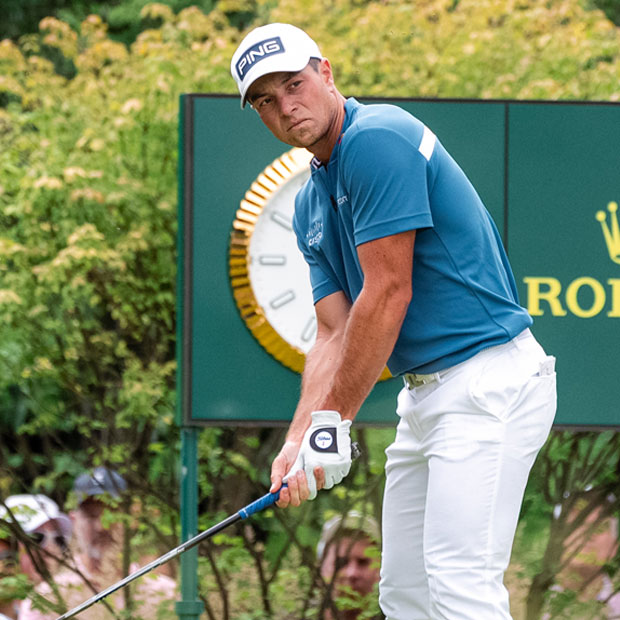
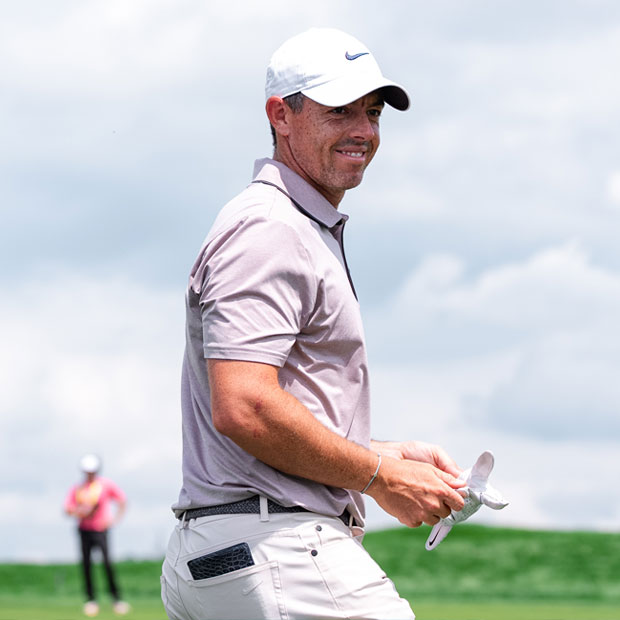
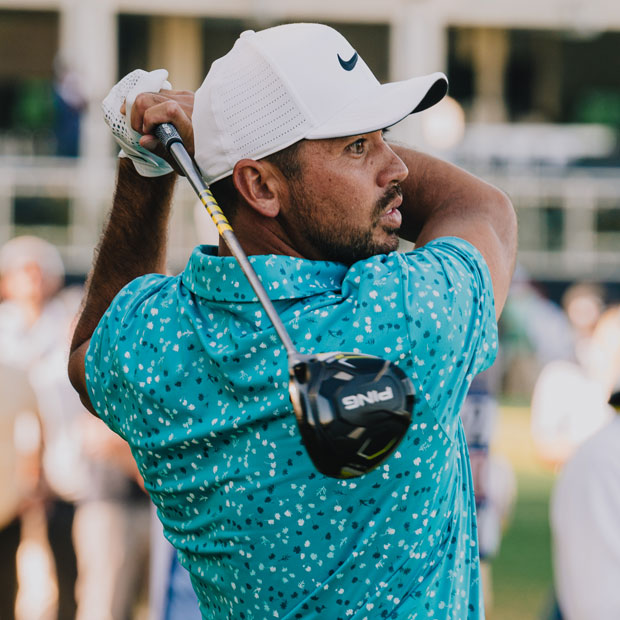


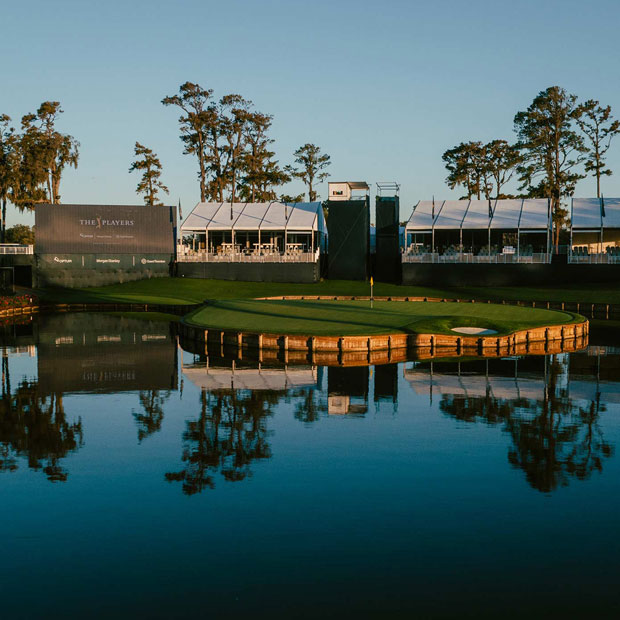
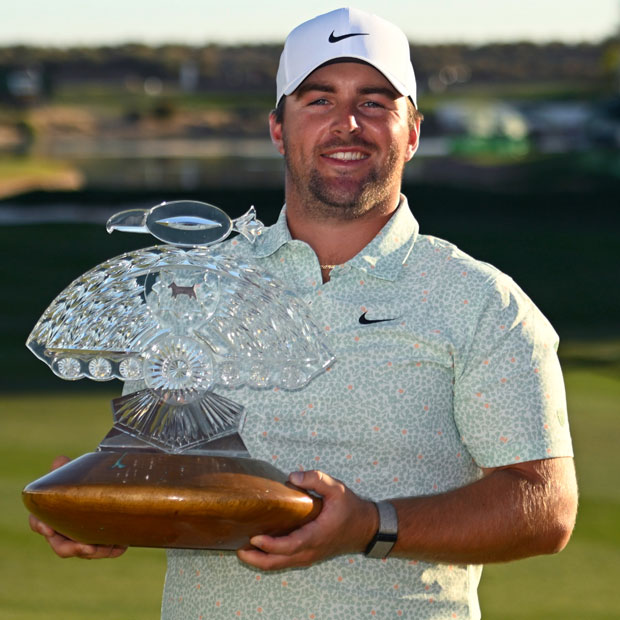
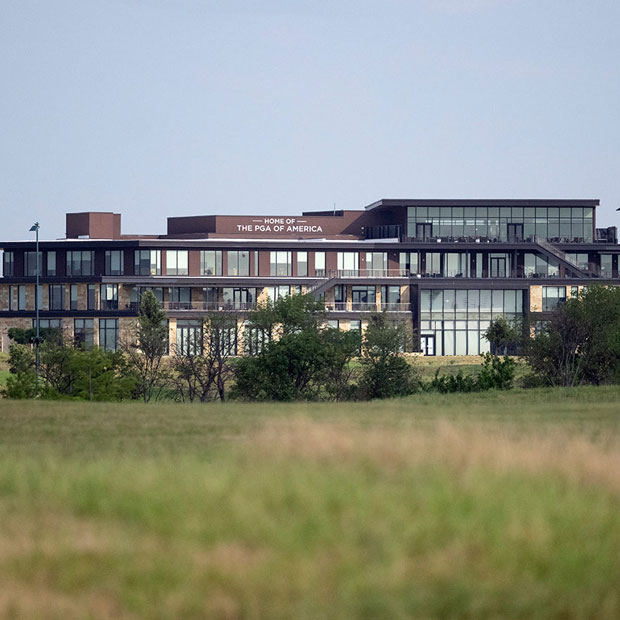
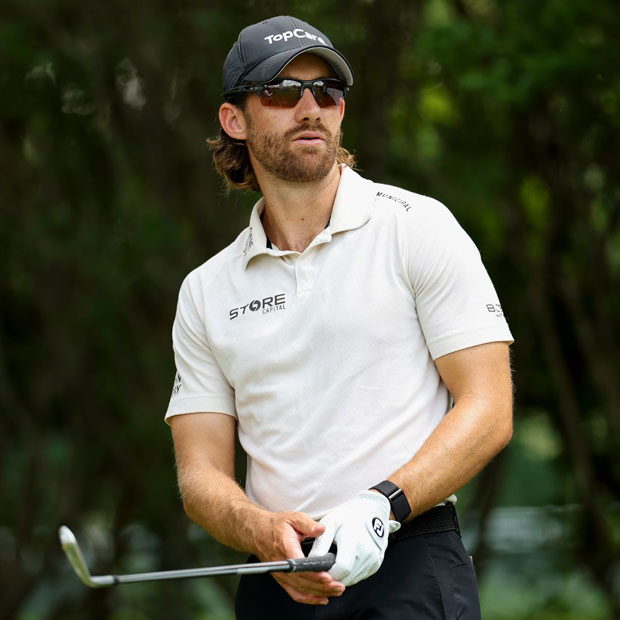
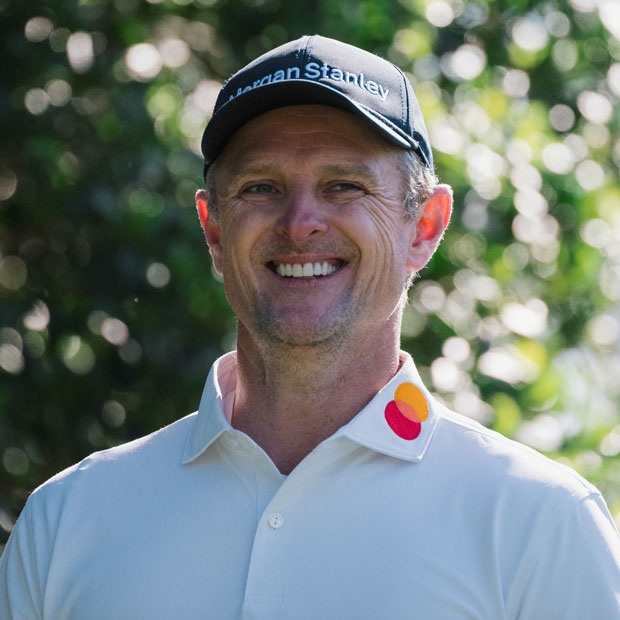
Leave a comment or start a discussion
Lorem ipsum dolor sit amet, consectetur adipiscing elit. Suspendisse varius enim in eros elementum tristique. Duis cursus, mi quis viverra ornare, eros dolor interdum nulla, ut commodo diam libero vitae erat. Aenean faucibus nibh et justo cursus id rutrum lorem imperdiet. Nunc ut sem vitae risus tristique posuere. uis cursus, mi quis viverra ornare, eros dolor interdum nulla, ut commodo diam libero vitae erat. Aenean faucibus nibh et justo cursus id rutrum lorem imperdiet. Nunc ut sem vitae risus tristique posuere.